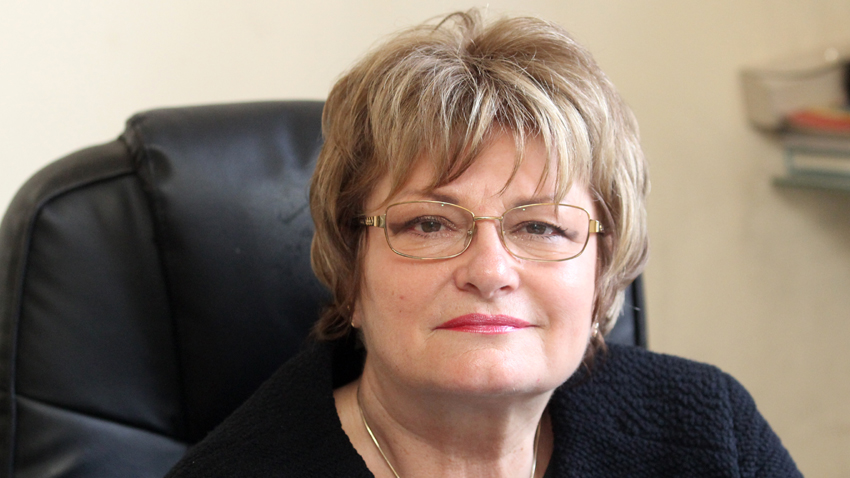“I am proud of the Corporate Commercial Bank for not infecting the system,” said Bulgarian National Bank governor Ivan Iskrov when at long last he stepped down from the post. But can we really say that the banking system with its hyper-liquidity is something to be proud of? The question may be rhetorical but the protest march of the association called “Protect the rights of borrowers” shows there is a different way of looking at things.
 The aim of the march is, as the organizers say to bring the “Swiss franc debt” to the attention of the powers that be, i.e. the debts in Swiss francs. As the euro goes down, so does the Bulgarian lev to the Swiss franc and credit payments go up. In the words of attorney-at-law Veska Voleva, known as prosecutor in cases against banks in this country, credits in Swiss francs are in practice financial loops which banks use as a firewall against the vacillation of the euro on international markets. The loans were not taken out in Swiss francs but most often in Bulgarian leva. Customers on the other hand are taken in by the initial lower interest rate and, having no knowledge of the way the financial markets work, are now suffering the consequences of the exchange difference. In Hungary, in similar circumstances, the clauses of the European Commission’s Directive 93 were applied, which provide for protection for borrowers as they are the weaker side, Voleva comments. In Bulgaria several cabinets have refused to acknowledge or grapple with the problem.
The aim of the march is, as the organizers say to bring the “Swiss franc debt” to the attention of the powers that be, i.e. the debts in Swiss francs. As the euro goes down, so does the Bulgarian lev to the Swiss franc and credit payments go up. In the words of attorney-at-law Veska Voleva, known as prosecutor in cases against banks in this country, credits in Swiss francs are in practice financial loops which banks use as a firewall against the vacillation of the euro on international markets. The loans were not taken out in Swiss francs but most often in Bulgarian leva. Customers on the other hand are taken in by the initial lower interest rate and, having no knowledge of the way the financial markets work, are now suffering the consequences of the exchange difference. In Hungary, in similar circumstances, the clauses of the European Commission’s Directive 93 were applied, which provide for protection for borrowers as they are the weaker side, Voleva comments. In Bulgaria several cabinets have refused to acknowledge or grapple with the problem.
The banking stability presented as a success is not in fact a demonstration of economic prosperity, behind it lurks a stunted legislation that allows for the unequal treatment of borrowers. The controversial article in question is article 417 of the civil procedure code which places the credit institutions in a position of privilege, enabling them to obtain writ of execution against debtors and auctioning off their property.
“This is where our mythical banking stability comes from, a system where the interest rate is 7-8 times higher than in the normal world,” Veska Voleva comments. “And the objective indexes – LIBOR , EURIBOR as well as the basis on which interest rates are set down, simply do not apply here. In Bulgaria there is no way of knowing what the reference rate of the banks actually includes. Because the court is simply not functioning. If it were then we could demand to see the methodology used to set down the interest rate, what its components are. For example, why should market conditions be valid when it comes to banks and it can cite them any time it wants to raise interest rates but are not valid when it comes to borrowers and their interest rates never go down as indexes go down? To banks borrowers are just someone whose money can be siphoned off. As the now former governor of the Bulgarian National Bank said – the Greek crisis has nothing to do with us. But these reference rates the banks set down actually include the Greek risk, in the form of Greek debt securities. And this is a risk we all have to pay for.”
Another problem, according to Veska Voleva is that there is no prohibition in place for heads of credit institutions to engage in commerce. According to Ms. Voleva many directors of Bulgarian banks are actually running other companies which buy debtors’ property put up for auction dirt cheap.
“They have debts transferred to people, they persecute and harass them,” Voleva says. “Where are the statistical data? Companies like that get more than BGN 100 million every week. All banks have commercial companies and transfer to them anything they want to. This dims the entire picture of what is going on inside the bank and what society is given is a carefully expurgated version.”
Despite the ambitious legislative programme of the cabinet, the Lobbying Bill, the Mortgage Act and the Law on Bankruptcy of Private Individuals have been put on the back burner.
English version Milena Daynova
“The main priorities businesses have – membership of the Eurozone and accession to the Schengen area by land – have receded to the background. They are the motors which can boost the economy, but the fact there is no regular government is an obstacle..
Bulgargaz has reported record interest in its tender for the supply of LNG to the Alexandroupolis terminal for January and February 2025. All nineteen bidders met the criteria set by the company and have been approved to participate in the next..
The Russian state oil company Lukoil has plans to sell its Bulgarian refinery Neftochim based in Burgas on the Black Sea Coast. It is the largest in the Balkans, writes the Financial Times . The deal is expected to be announced by the end of..

+359 2 9336 661
